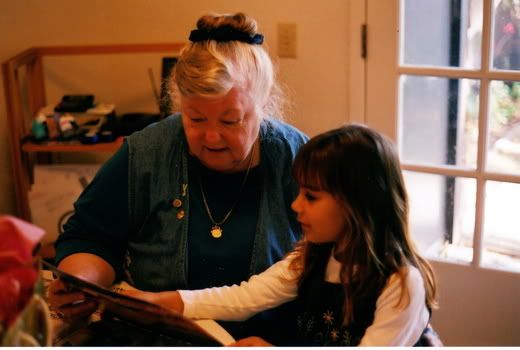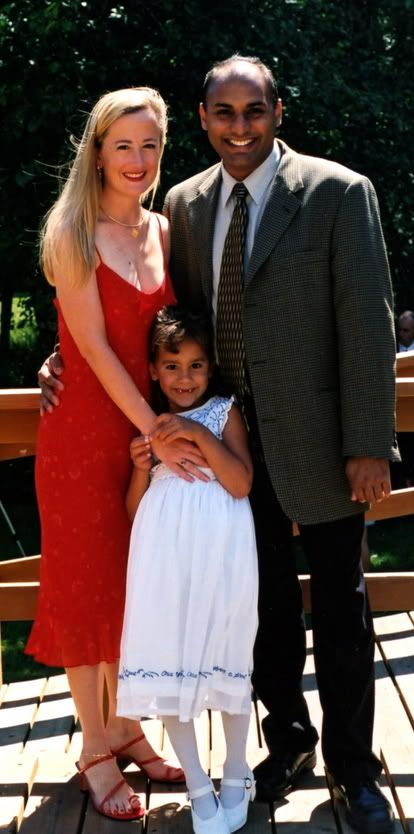
I was visiting Disgusted Beyond Belief and encountered the excellent post Educating one's child on economics and it started me thinking about allowances.
When I grew up, money was a taboo subject. It was not talked of in any but the most general terms. In “genteel” families it was almost not discussed at all. You didn’t discuss how much you had, how much you earned, how much you needed, or how much something cost. I have no idea how any of us learned to deal with it. Indeed, as I remember it, my early excursions into money were not unlike my early excursions into that other taboo subject, sex. I didn’t know what the hell I was doing, and some of the results, although funny in retrospect, were horrid at the time. And, it’s not something that you can grow up without understanding; this is a culture that runs on money and if you can’t manage it you are in real trouble.
So, when I had kids, I did some research on the subject. I knew some general principles from being a Montessori teacher. I knew that to teach a skill you break it down into component parts and set up practice with each one. I also read Haim Ginott’s “Between Parent and Child” and agreed with his statements about money. In the first place, in a family everyone gets a share of the resources. There is a roof; we all stay dry. There is food; we all eat. There is love; we all are loved. There is respect; we all are respected. There is money; we all get some of that as well. Secondly, the purpose of an allowance is to develop proficiency with money. As adults, we will need to earn money and then manage it. As children, we need to learn these skills separately.I began giving Richard and Julie an allowance when they were six. Since then I’ve been really impressed with the idea of giving an allowance as soon as your child, when offered her choice between a nickel and a dime, chooses the dime. Allowances grow with age. They start out small, to be used for fun, given weekly. Later, when the child can get through the week on the allowance given, she is ready to have money doled out further apart. The ideal of learning to budget month-to-month is high school level; and if your teen can’t do it at first, going back to weekly and then semi-weekly is a good idea.*
How much allowance to give depends on what you can afford, which does not mean that if you are extremely rich your child should get a huge allowance, but rather that you should not give more than you can comfortably manage. What do you expect the child to do with this money? If it is only for pleasure it will be less than if it is to include school lunches. What is customary in your child’s peer group? Make certain that there is understanding between you and your child about all of this.I don’t believe in advances; children shouldn’t learn to live on credit. They shouldn’t get extra “just this once” and they shouldn’t get their allowance taken away as a punishment for anything.** They can’t learn to manage it if they can’t predict when and how much they will get. It is certainly alright, if a child needs extra money, to allow the child to earn it. Richard and Julie sometimes earned extra by doing each other’s chores and being paid for it. Sometimes I would pay them to do something I normally did. They got odd jobs in the neighborhood, with their grandparents, at the local pizzeria and horse stable.When Julie was 12 I was going crazy going from store to store with her to try on clothes. When I mentioned this to my secretary she told me about her daughter’s clothing allowance. Wonderful. I started giving my kids a clothing allowance. Julie learned the most important things. She learned not to save forever for one pair of fashionable jeans.; not to buy things that weren’t well made; to check and make sure they covered what they were supposed to cover; that if a blouse didn’t go with anything she owned she wasn’t going to wear it. She is, to this day, a wise shopper.
Richard bought a belt with his clothing allowance the first month, and after that he couldn’t figure out what clothes he needed. Finally he asked if he could spend his on books instead of clothes, and since that fits my values, I agreed.
At 16 their allowances ended. They knew when they began that would be the case. At 16 the law said they could work. Julie got a paying job at 14, just so to be ready. Richard learned to live on minimum money, and did Julie’s chores so she could work. Both were fine outcomes as far as I was concerned. Eventually he wanted computers and games and speakers and things that required a real job, and eventually he got one.
I would suggest, that since when kids get jobs their grades tend to drop, you consider that. If either of my two had been poor students, I would have continued allowances.
* Remember, it is important for a child to experience success in the acquisition of skills. In a Montessori classroom, all lessons that don’t end in success are ended by going back to a previous successful level. This is not to give a false sense of self-esteem, but to prevent reviewing the incorrect solution between lessons.
** I’ll talk about what to do about chores soon. For now, don’t pay them to do them and don’t not pay them if they don’t. If you are already paying them for chores, wait a couple of days for my chores post and if you agree with me, you can change what you are doing. Tell the child why and she will learn what people do when they learn new things.


















7 comments:
Great post. I was thinking about this as I read an article this weekend abuot the "teen brain" - and arguments about whether there even was such a thing, because teens are so different in different cultures. In the US, they are mostly around their peers and learn from their peers (and so its no wonder its often "lord of the flies") while in other places, you hit teen years and you are doing adult work and socializing mostly with adults, so perhaps unsurprisingly, teens act like adults. The tie-in to this is that it then occurred to me that perhaps the best way to achieve that is have a teen get a real job where they work with adults. I may have inspired for myself a whole post on this subject, come to think of it...
I wonder how much of an allowance will be reasonable when my daughter reaches the age of six (in just over four years). I think I got ten to twenty dollars a week when I was a teenager. Probably more like twenty by the end. I don't remember when it ended.
My grades did suffer when I got a job, I'm sure. But not so much as to worry you, I'm guessing. :)
Julie,
A parent doesn't worry about grades when her child graduates from high school in three years.
This is a VERY interesting post--good food for thought for me in a few years!
We talked quite a bit about money, but never, ever about sex. Interesting what self-imposed boundaries families put on themselves.
Mine still picks the nickel over the dime because it's bigger, so I have a little while yet!
What a great post. And yes, J is a VERY, VERY wise shopper, and her clothes are always so well taken care of and fashionable and lovely.
I want to remember this post for when I have kids, and am thinking about allowances. Wonder if blog achieves will go that far back? ;-)
Post a Comment